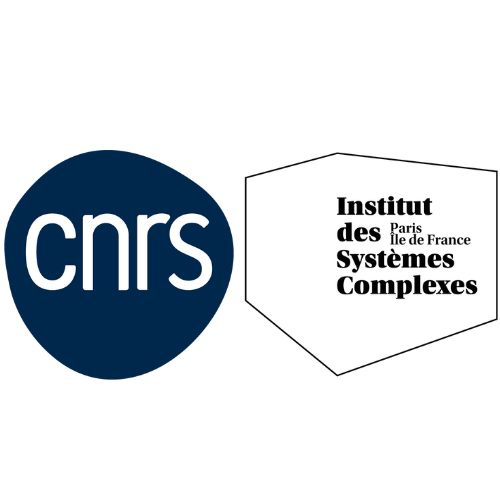Webinaires : Ouverture internationale et perspectives scientifiques
En complément des travaux collectifs menés avec divers acteurs en France, des webinaires sont proposés à tous les participants, quel que soit leur chantier. Ils offrent l’occasion de découvrir des initiatives menées à l’international ou d’explorer des perspectives scientifiques plus larges.
Mathieu O’NEIL
Université de Canberra / Australian National University

Exemple de politique menée en Australie
4 mars 2025 de 10h00 à 11h00
Améliorer l’évaluation de la crédibilité des informations : Opportunités et défis dans le contexte australien
Mathieu O’Neil est professeur de communication à l’Université de Canberra et professeur associé honoraire de sociologie à l’Australian National University. Il est le cofondateur du Virtual Observatory for the Study of Online Networks (centre de recherche australien sur l’analyse des réseaux en ligne) et le fondateur du « think tank » Digital Commons Policy Council. Ses recherches actuelles portent sur la détection des chambres d’écho, sur la soutenabilité des communs numériques et sur le développement de méthodes d’éducation aux médias pour les écoliers et lycéens qui soient appropriées à l’économie de l’attention. Il a corédigé fin 2024 un rapport pour le Conseil National Scientifique et Technologique australien sur « Quelles interventions éducatives et connexes peuvent renforcer la résilience à la mésinformation et à la désinformation ? »
Décoder la propagande politique par la science des données
31 mars de 10h00 à 11h00
From Posts to Publisphere: Using Data Science to Decode Political Propaganda
Social media has emerged as a crucial arena for political influence, where propaganda significantly shape public opinion. This study employs advanced data science methodologies, including machine learning, graph theory, and computer vision, to systematically analyze online political propaganda strategies during the referendum in Taiwan. A large-scale investigation of hundreds of political fan pages is conducted, extracting and analyzing tens of thousands of text-based posts, images, and user interactions from social media platforms. By leveraging multimodal analysis, the study examines the interplay between textual rhetoric, visual elements, and social engagement in online propaganda dissemination. Findings reveal patterns in propaganda deployment across political parties, offering insights into how digital campaigns shape public discourse. This research underscores the critical role of computational social science in decoding online political influence.
Ming-Hung WANG
Office of Information Technology at National Chung Cheng University, Taïwan

Daniel Mainguy
Université Paris 1 – Panthéon Sorbonne

Jean Bruschi, maître de conférence à Paris VIII
Droit
29 avril 2025 de 11h à 12h
Les instruments juridiques de lutte contre la manipulation de l’information : présence et défauts des outils disponibles
Daniel Mainguy, Professeur à l’Ecole de Droit de la Sorbonne, Université paris 1 Panthéon Sorbonne ; il y co-dirige le Master 2 « Contentieux des affaires ». D. Mainguy concentre ses travaux sur des questions de droit des contrats d’affaires, internes ou internationaux, le droit de l’arbitrage, et le droit des conflits non-armés et non-militaires, notamment son incidence sur les deux premiers thèmes, ce qu’il désigne comme le « droit de la guerre atypique ». Il a publié plusieurs ouvrages en droit des contrats (Contrats spéciaux, Dalloz, 13èm éd., 2023) en Droit de la concurrence (, avec M. Depincé et M. Cayot, LexisNexis, 4è éd., 2024), de l’arbitrage (Droit de l’arbitrage, théorie et pratique, avec J. El Ahdab, LexisNexis, 2021) et Droit de la guerre atypique (LGDJ-Lextenso, 2023).
Par ailleurs, Jean Bruschi, maître de conférence à Paris VIII complètera les propos de Daniel, il précisera notamment certains aspects juridiques de la manipulation de l’informations à la lumière de faits d’actualités.
Analyse de manipulations coordonnées
6 mai 2025 de 14h à 15h
Qu’est-ce que le comportement inauthentique coordonné (CIB) et pourquoi est-il si difficile à cerner ?
In this session, Ana Romero-Vicente, a counter-disinformation expert at EU DisinfoLab , will explore the evolving landscape of CIB, its definitions, detection strategies, and the impact of emerging technologies like generative AI. Drawing on two of her most recent reports, she will:
🔍 Explore the four-branch CIB Detection Tree: Coordination Assessment, Source Assessment, Impact Assessment and Authenticity Assessment
🖼️ Present a visual framework to recognize key indicators of CIB based on real-world disinformation and manipulation campaigns.
📊 Provide practical tools and techniques for detecting and analysing coordinated efforts, with a focus on supporting the defender community in identifying and mitigating CIB’s effects.
The webinar is designed to be accessible to both newcomers and seasoned professionals. Whether you are a researcher, policymaker, journalist, or digital defender, you will gain actionable insights into how to recognize the symptoms of CIB, and why a clear and operational definition is crucial in the fight against disinformation.
Don’t miss this opportunity to sharpen your understanding of one of the most elusive and impactful threats in the information space.
Ana Romero
Counter-Disinformation Researcher – EU DisinfoLab |

James PAMMENT
Université de Lund, Suède

Resister aux manipulations
12 mai 2025 de 11h00 à 12h00
Psychological Defence: Concepts and principles for the 2020s
This talk introduces some of the main ideas from a recent report which updates the Swedish Cold War concept of “psychological defence” to the post-2014 security environment. It examines four principles as constitutive of contemporary psychological defence:
- Resilience: coordinated efforts to foster societal resilience and reduce vulnerabilities in people, systems, and institutions.
- Threat intelligence: coordinated efforts to understand and track external threats.
- Deterrence: coordinated efforts to defend society and, where possible, shape the behaviour of external threat actors.
- Strategic communication: coordinated efforts to understand and counteract vulnerabilities and threats through engagement in the information environment.
As such, the report defines and develops upon the concept of psychological defence for the 2020s and beyond, in the context of debates about a potential new European-level institution performing a similar role.
Modèles de contagion
12 mai 2025 de 14h00 à 15h00
Démêler les dynamiques de la désinformation en ligne : Des schémas clés aux stratégies d’endiguement
The spread of misinformation in online environments presents a profound challenge to public trust, societal cohesion, and evidence-based decision-making. While static features of misinformation—such as emotional intensity, sensationalism, or source credibility—have been widely studied, less is known about its dynamic patterns over time and how these differ from accurate information. This talk examines key empirical patterns underlying the evolution, emotional trajectory, and recurrence of misinformation in digital contexts. Drawing on recent advances in computational social science and modeling approaches inspired by epidemiology, I demonstrate how misinformation tends to intensify in emotional negativity over time, reappears more frequently when characterized by ambiguity or falsehood, and spreads in ways that mirror contagious, epidemic processes. I also explore the relative effectiveness of different containment strategies like inoculation and post deletions and show when they are most effective. By synthesizing insights from communication studies, psychology, and data science, this talk aims to advance a more nuanced understanding of how misinformation behaves—and how it can be countered—in today’s complex information ecosystem.
Julian Kauk
University Jena, Germany

Emma Beauxis-Aussalet
Vrije Universiteit Amsterdam, Pays-Bas

Ethique et données
16 mai 2025 de 11h à 12h
Ethics of information access: issues with fairness and affordances
Emma Beauxis-Aussalet is an Assistant Professor of ethical computing at Vrije Universiteit Amsterdam, where she investigates the means to make AI systems that are safe, fair, and transparent — for example by modeling their errors and bias. She is also the co-manager of the Civic AI Lab, which investigates the ethical issues of AI for public services, in collaboration with the city of Amsterdam, and the Dutch ministry of interior affairs.
Emma obtained her doctorate at Utrecht University with a dissertation on AI bias, for her work at the Centrum Wiskunde & Informatica (CWI). She also holds a Master in Computer Science, a Master in Communication, a Bachelor in Graphic Design and a Bachelor in Web Technology and Marketing. Before becoming a researcher, she acquired multidisciplinary expertise in the industry as a designer, R&D engineer, data specialist, and project leader.
Emma’s research has developed computational methods, statistics, user interfaces and data visualizations that enable fair and transparent AI systems. For her achievements in this field, she was named one of the 100 Brilliant Women in AI Ethics in 2021. She also received the 3rd WomENcourage Prize in 2021 for her contributions to the development of AI literacy and bias awareness in lectures and workshops.




Vous devez être connecté pour poster un commentaire.